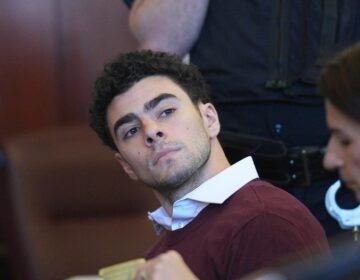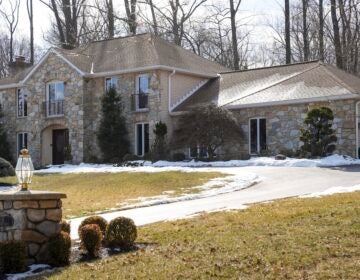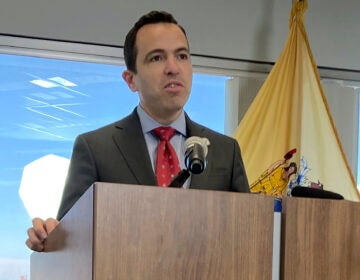Long wait for justice for Philly woman strangled by North Jersey serial killer
Two weeks after Robin West vanished, her family learned that she had been murdered. But the bad news did not end there.
At first, they didn’t panic that she was gone.
Robin West sometimes did that. She’d disappear for a day, maybe two, rarely longer. Robin, who lived with a friend in West Philly, was a tempestuous teenager who brought her family happiness and heartache in equal measure.
But her birthday was coming, and this one — her 20th — would be a milestone. She’d bought a lacy white dress to mark the occasion and modeled it on Facebook.
Six days before her birthday on Sept. 5 last year, she told her parents she was headed to North Jersey for a few days to celebrate early.
Then she vanished.
Her family texted and repeatedly called, with no answer.
After a week, they reported her missing.
After two weeks, “her mom called me and said: ‘Oh, they found Robin!’ ” recalled Robin’s father Leroy West, 54, of Logan. “And I immediately got excited. I said: ‘Well, let’s put some gas in the car, and let’s go get her!’
“And she said: ‘No. They found her body.’ ”
Firefighters battling a blaze on Sept. 1 at an abandoned house in Orange, Essex County, in North Jersey, found a body burned beyond recognition. Robin laid in the morgue unidentified for almost two weeks before dental records confirmed it was her.
But that gruesome discovery was just the start of the family’s anguish.
Investigators would soon tell them that Robin was the first victim of a serial killer.
He’d attacked four women in North Jersey during a murderous three-month spree, police said, leaving three of them dead. He was finally nabbed early last December.
They would learn that their daughter, who sang so sweetly that she sometimes led the choir at church, had been working in the sex industry.
And they would read news coverage that reduced Robin to passing, painful phrases like “teenage Philadelphia hooker” and “Philadelphia escort.”
“They need to take that ‘escort’ off of there, because she was a person and did not deserve to lose her life,” said her mother, Anita Mason, 48, of Upper Darby.
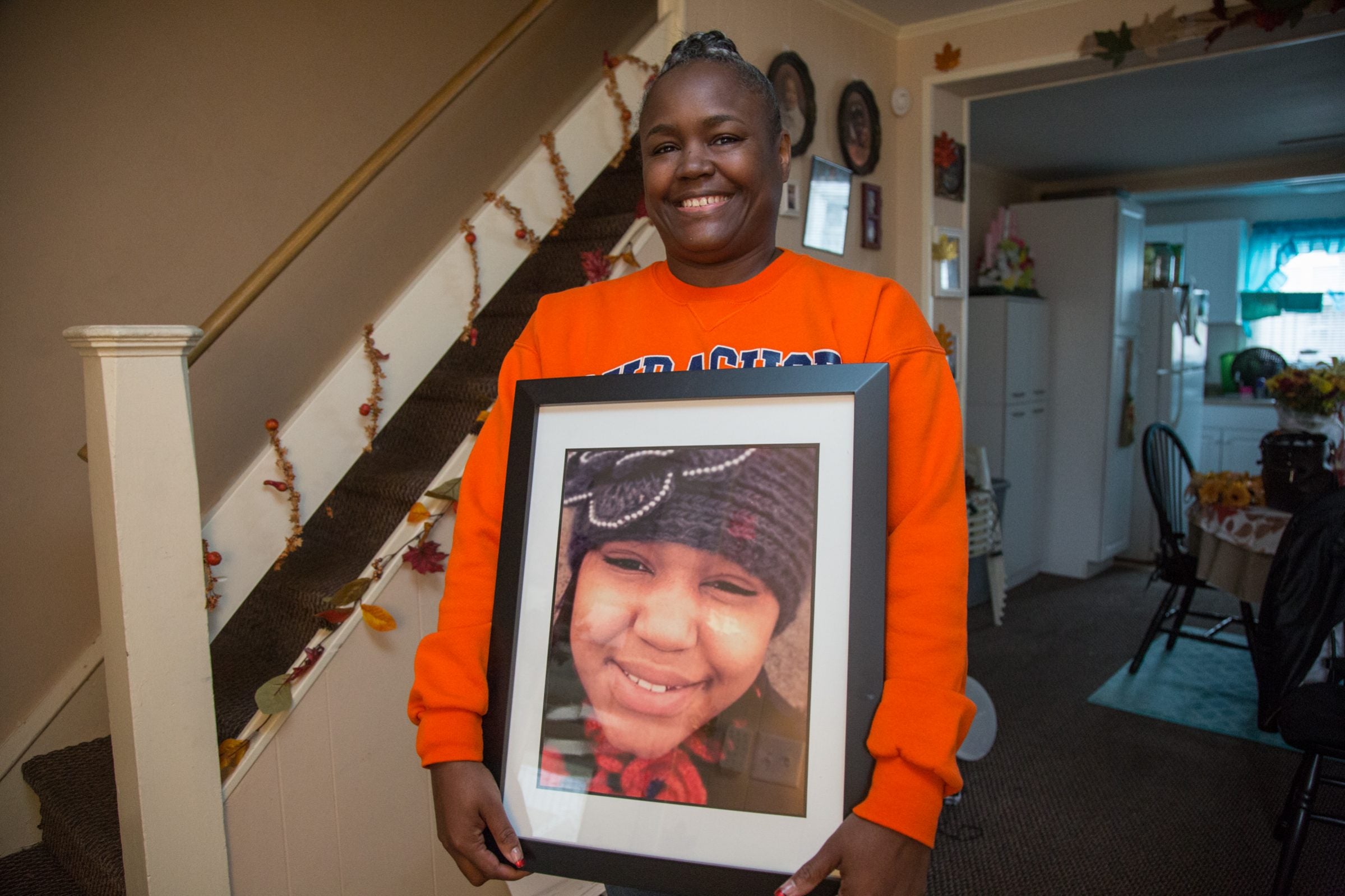
Nearly a year has passed since police arrested Khalil Wheeler-Weaver, 21, of Orange, in the murders of Robin and two other women and the rape and attempted murder of a fourth. Authorities have been stingy with the details, as authorities tend to be before cases go to trial.
But Wheeler-Weaver’s trial isn’t expected to happen until next fall.
So Robin’s family has had lots of time to replay over and over again their daughter’s brutal death. More time than they’d like to mull the mystery of how the quirky teenager quick to clown for a laugh ended up in the crosshairs of a serial killer.
“We still have a lot of questions,” Leroy West said. “We don’t know why. We’re not even sure how they met. Did she get in his car? Or did he grab her? There’s so many questions that we have that we just don’t have answers to yet.”
Rare occurrence
While Hollywood might make you believe otherwise, serial killers are quite rare.
Of almost 16,000 homicide victims in the United States in 2015, just 0.3 percent (26 people) died at the hands of a serial killer, according to data from the FBI and the Serial Killer Information Center, a project by researchers at Radford University in Virginia and Florida Gulf Coast University. On average, 20 serial killers were active in the United States in any given year this decade, according to the center.
That’s why investigators didn’t immediately recognize that Robin, Joanne Brown, Sarah Butler, and another woman who survived an attack could have fallen prey to the same person.
But the similarities were so striking that last February, they announced that they’d linked Wheeler-Weaver to all four cases.
The victims were young African-American women who worked in the sex industry, according to the Essex County Prosecutor’s Office. The three who died had been strangled, with Brown and Butler choked by articles of clothing.
The killer hid their corpses in remote or out-of-the-way places. Robin and Brown, 33, were found in vacant houses in Orange, less than two miles away from each other — and from Wheeler-Weaver’s home — while Butler, 20, a New Jersey City University student, was found Dec. 6 buried beneath leaves and debris at the 408-acre Eagle Rock Reservation in nearby West Orange.
Further, cellphone records linked Wheeler-Weaver to two victims, according to a January 2016 affidavit obtained by NJ.com. In that affidavit, a detective asking for a court order to get a hair sample from the suspected killer wrote that Brown called a friend on Wheeler-Weaver’s phone, and cell data placed him at the scenes of her and Butler’s murders.
Still, Wheeler-Weaver hardly fit the profile of a serial killer: He’s young. Male serial killers are, on average 27.5 at the time of their first kill, according to the Serial Killer Information Center. Wheeler-Weaver was just 20 when he allegedly strangled Robin.
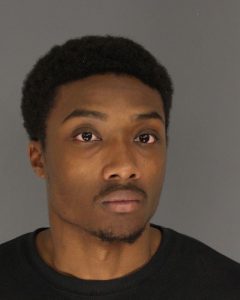
But more disturbingly, he comes from a law-enforcement family, with several relatives in local police departments. He was in security himself, working as a grocery store security guard at a ShopRite in the Union area.
That especially baffles Robin’s father, who works in law enforcement, too, as a school police officer at Frankford High School in the lower Northeast section of Philadelphia. Leroy West can’t fathom how someone sworn to serve and protect could instead terrorize and destroy.
“I need to know what happened to him, what caused him to snap like this,” he said. “I’ve been face-to-face with him in court, and I’m looking at a handsome young man, and I’m thinking: ‘Why would you need to go out and track these young women and murder them?’ Nobody wants to relive and hear the details. But I want to know why he killed my daughter, and why he found it necessary to set the house on fire.”
He added: “Her mother and I believe that she probably pissed him off, because she was a fighter. She wasn’t going to just sit there and let him hurt her.”
Embattled childhood
Robin had been fighting against one thing or another almost all of her short life.
Her parents divorced when she was a baby, and she stayed with her mother — but often yearned to spend more time with her father, whom she didn’t reconnect with until her teens, Anita Mason said.
She struggled in school, even as far back as kindergarten, and took medication to control her attention-deficit hyperactivity disorder. But she had such mood swings that her parents suspected she had undiagnosed depression, bipolar disorder or even schizophrenia.
She bounced in and out of both psychiatric placements and alternative-education schools, including Wordsworth Academy, a residential treatment center in West Philly for troubled kids. Although the now-shuttered Wordsworth became notorious after one of its students died last fall while struggling with staffers over an iPod, Robin never had any problems there, her parents said.
Still, she left the school without a high-school diploma, a failing that nagged her.
“She struggled with reading and math. She could do addition. She couldn’t do fractions. But she could do algebra,” Anita Mason said, smiling.
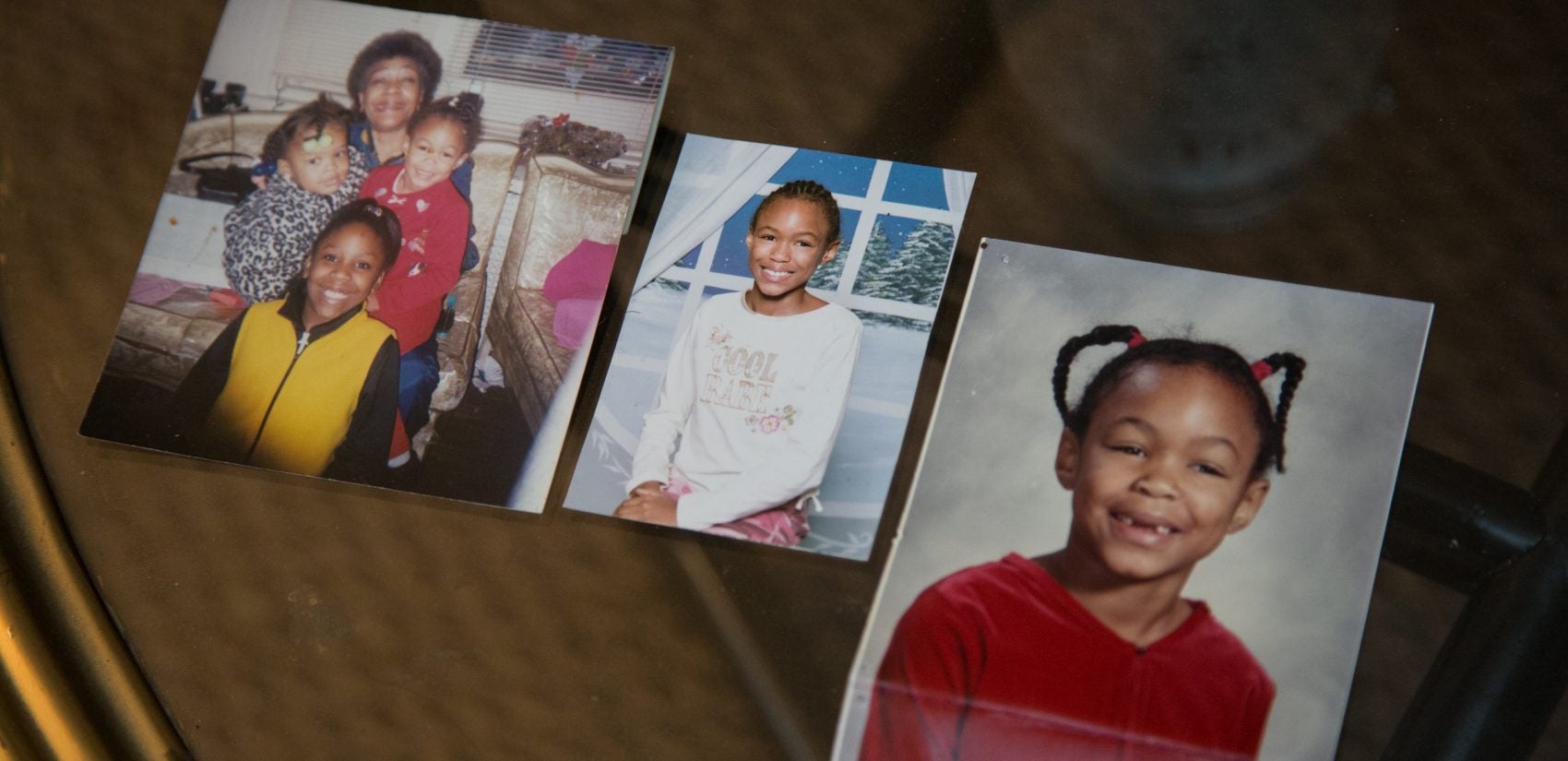
Her teenage troubles only deepened when the close family friend Robin considered a “second mom” died unexpectedly when Robin was just 14, Anita Mason said.
That’s when she began running away, one day here and a few days there. She sought solace in friends her parents found so unsavory that later, they would bar them from her memorial service.
“It’s hard when you’re a teenager, you have all these feelings,” her cousin Zina Mason said, sobbing as she talked about Robin. “She wanted to relieve her parents of trouble, and she thought that not being around and giving them space was something she needed to do. So she just went out there and hung out with anybody who had a smile on their face.”
Robin told her parents she didn’t want to burden them with her troubles, Anita Mason said, yet “she didn’t realize the decisions she was making made us worry more.”
Leroy West agreed: “She felt: ‘I’m grown, and this is what I want to do.’ When she set her mind to do something, she would do it. You can ask anybody. You could warn her, you could tell her: ‘It’s not a good idea.’ And she might listen — but nine times out of 10, she was going to do what she wanted to do.”
When Robin turned 18, she moved out of her mother’s house.
“She decided she didn’t want her (younger) brother to be affected” by her troubles, her mother said. “She knew she couldn’t stay home, because following rules and stuff wasn’t what she wanted to do.”
Still, her parents never lost hope that Robin would eventually find her way.
“She was trying to get her mindset straight,” Anita Mason said. “From time to time, she would say she wanted to go back to school.”
Her parents like to think she someday would have found her calling working with animals. Robin loved them, especially dogs, and often talked about becoming a veterinarian or working at the Philadelphia Zoo, they said.
Still, on Facebook, the photos Robin posted hinted of a future heading in a different direction. In older images, she smiles shyly, an awkward, average teenager. More recently, she appeared as a beautiful, sometimes scantily clad young woman leveling her best smoldering stare into the camera.
Her parents say they didn’t know she had gone into sex work.
After Robin died, Anita Mason’s brother pulled up Robin’s phone number online and discovered connections to the sex industry.
“He said: ‘You’re going to find some information out that you don’t know,’” Anita Mason said. “I didn’t raise my child that way. I didn’t have that kind of stuff going on in my home, so I didn’t really know. To me, I’m thinking it was probably a quick way (for her) to get money.”
Even now, her father still doubts it.
“There is nothing to prove that that’s what she was doing,” he said. “She may have been friends with somebody who was doing that. That doesn’t necessarily mean she was doing that.”
Comfort in the church
In a poorly-lit kitchen, Robin backs away from the video camera she just clicked on.
She explains someone named Brittany wanted her to sing, so she launches into the hymn “Oh Lord, We Praise You” as kids shout unseen in the background. She posted the video to Facebook not long before she died.
I was thinking the other day
About the joy that came my way,
How He took away my frown
and all those things that had me bound.
I thought about all those times
When I was walking around in a daze,
but now I stand before You
with nothing but praise.
Oh Lord!
No matter what plagued her, Robin often found comfort in the church, her parents said.
Both are devout Christians, and Leroy West — the son of a pastor — also recently got ordained and now serves as assistant pastor at Bible Fellowship Church of God in North Philly. Anita Mason sings in the choir at Sanctuary Church of the Open Door in West Philly.
Robin often accompanied them to services, where she sang in the choir, too.
Such spirituality has helped Anita Mason find closure.
“My acceptance is that God doesn’t make mistakes, you know, and that He said that it was enough,” she said. “She (Robin) had done everything that He had planned for her to do, and it was time to go home. I asked God just to keep and protect Robin, and in that keeping and protecting her, part of it was calling her home. I know she’s up there, happy, smiling down on us. And I know my mom’s up there with her.”
But for Leroy West, peace remains elusive, even though as a pastor, he preaches forgiveness.
“I’ve been in the church all my life. I love the Lord. [But] I’m not there yet. Not there yet. You took something from me that was very precious,” he said. “Now I’ll never see her graduate, I’ll never see her walk down the aisle, I’ll never see her have a child. It’s gone. The only thing I have is memories and a cross that I wear around my neck with her ashes in it. That’s all I got. So I’m not there. I can’t sit here and say I forgive him. I can’t sit here and say, I’ll be able to forgive him. Because at the end of the day, no matter what the judge says, no matter whether he goes to jail, how much time he gets or whatever, when I go home, she won’t be there.”
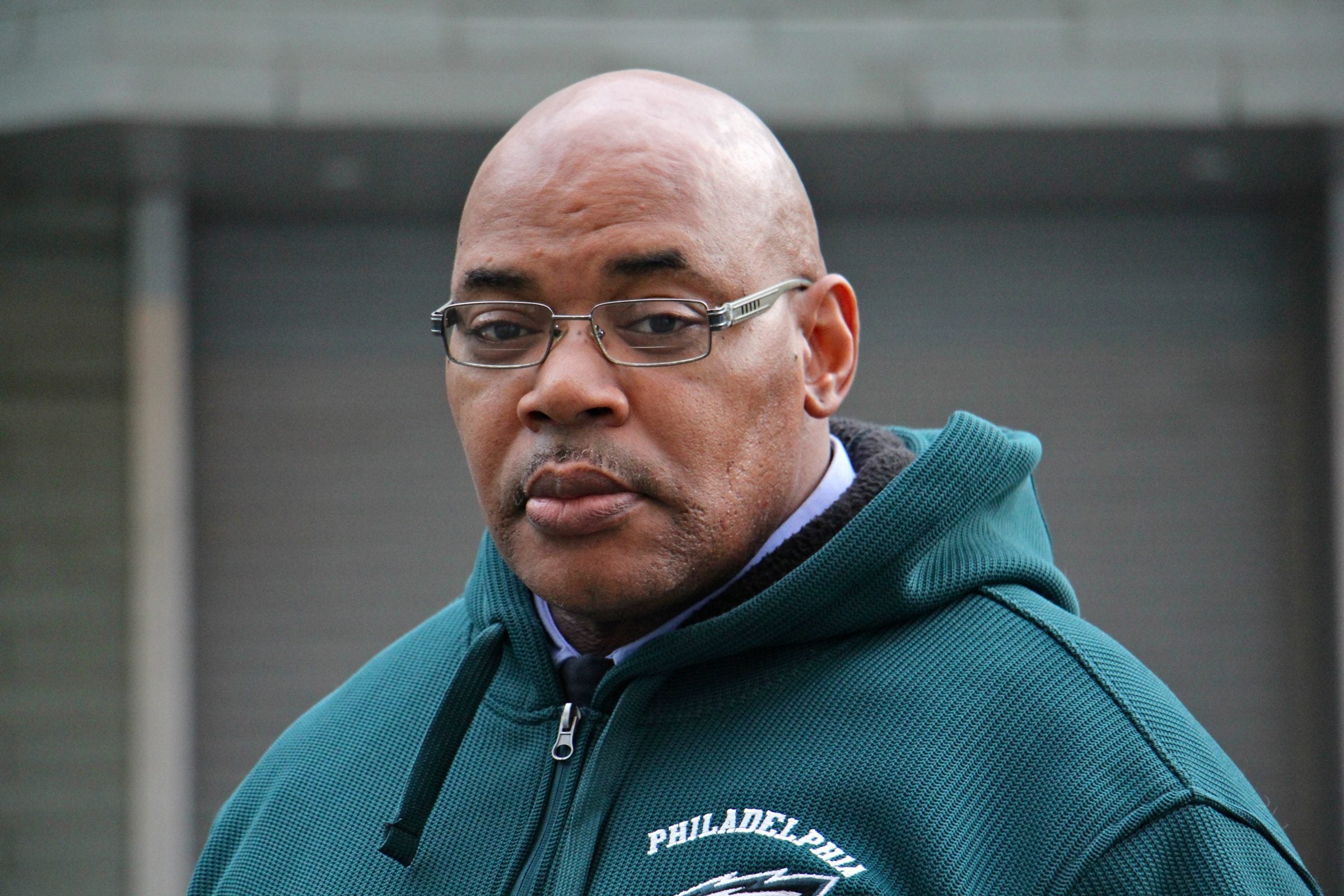
Robin’s parents have gone to most of his court appearances.
“I need to make Robin’s face present — you see, we look alike. People say she’s my twin; she was lighter than me, that’s all. I have to represent Robin,” Anita Mason said. “And I know if something would have happened to me, she would have been there every day just to see that justice is served.”
But it’s not easy.
“There’s a rage inside of me, my legs start shaking,” Leroy West said, of seeing Robin’s accused killer in court. “You’re looking at someone who looked my daughter in the eye and saw the life leave her body. I never even got a good-bye.”
Still, they try to not to dwell on the heartache.
They smile as they tell stories about Robin.

She was a good dancer who liked to make people laugh, her cousin said, and sometimes those two facts collided with hilarious effect, like the time Robin threw out her arms in the sprinkler dance — and sprinklered her way right off the front porch.
“She just got up and started cracking up, like she didn’t hurt herself — she fell on concrete! But she got up and just was still laughing,” Zina Mason said. “It’s like: ‘Robin’s so crazy! Are you OK?’ She said: ‘I’m fine! I’m fine!’ She really did like to make people laugh.”
To keep her memory alive, Leroy West has started a scholarship in Robin’s name at Frankford High School, where he aims to give $500 each year to a deserving student who maintains at least a 2.75 GPA, is involved in something positive, and writes an essay about why they deserve the scholarship.
“She is very much missed,” Leroy West said.
Still, he added: “God knows better than I do. Sometimes when we say: ‘Lord, I need you to heal this person, I need you to make this thing better,’ sometimes, being called home is the healing. We worried about Robin all the time — where she’s at, what she’s doing, who she’s with. But we don’t worry anymore. We know she’s safe, and she’s in a better place.”
WHYY is your source for fact-based, in-depth journalism and information. As a nonprofit organization, we rely on financial support from readers like you. Please give today.


